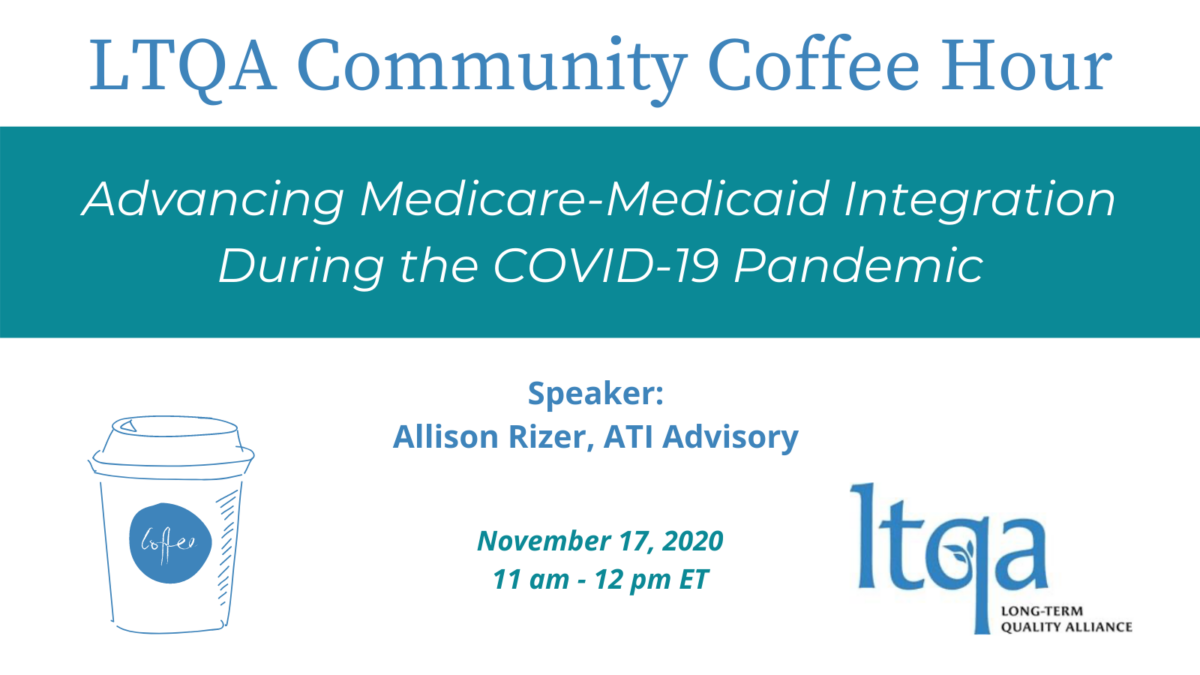Individuals dually eligible for Medicare and Medicaid have been disproportionately affected by the COVID-19 pandemic due to intersecting risk factors, including chronic conditions and racial and socioeconomic disparities. On top of this, dual-eligible individuals must navigate two complex and often conflicting insurance systems to receive care.
During LTQA’s inaugural Member Coffee Hour on November 17, 2020, Allison Rizer of ATI Advisory presented new findings from analyses of Medicare Current Beneficiary Survey data and Centers for Medicare & Medicaid Services (CMS) preliminary COVID-19 outcomes as explored in a recent ATI Advisory blog post. She also shared Medicare-Medicaid integration policy opportunities states can pursue, even in the absence of a full MLTSS program. Ms. Rizer’s presentation was followed by an LTQA community discussion. See the full summary and slides below.
Resources
Further reading
- ADvancing States and CHCS Briefs on Integration for States
- ATI Advisory Blog on Medicaid-Capitated D-SNPs
- Justice In Aging Issue Brief on Centering Equity for Dual Eligible Beneficiaries
- LTQA and ATI Advisory Roadmap and Policy Brief on Advancing Non-Medical Supplemental Benefits in Medicare Advantage
- Better Care Playbook Blog on the PACE Response to COVID-19
- National Bureau of Economic Research Working Paper on Social Distancing, Internet Access and Inequality
- BMA Report on Medicare Experiences with Telehealth during COVID-19
- MLTSS Association Value Proposition for MLTSS Health Plan Participation in CMMI Direct Contracting Model

